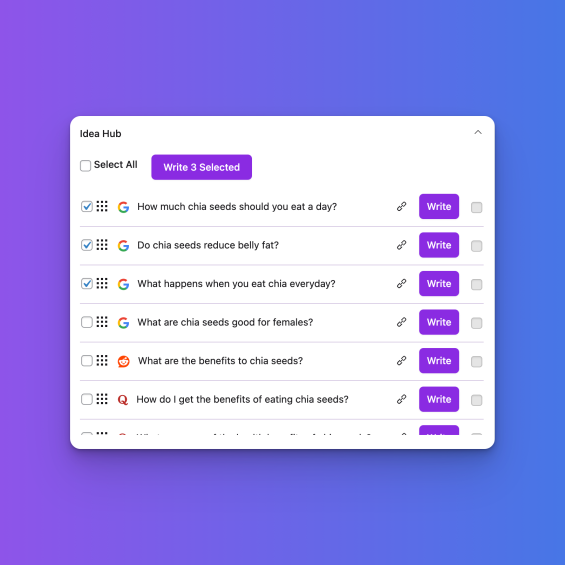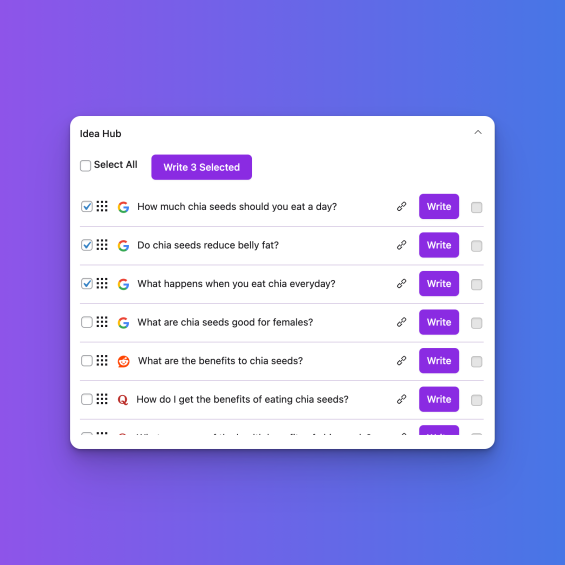Table of Contents
- Introduction
- What is SEO Ranking?
- What are the major Google ranking factors in SEO?
- What determines Google Search ranking?
- How do backlinks influence Google SEO ranking?
- What role does website speed play in Google SEO ranking?
- How important is mobile-friendliness for Google SEO ranking?
- What is the impact of content quality on Google SEO ranking?
- How does Google handle duplicate content in SEO ranking?
- What effect do bounce rates and dwell time have on Google SEO ranking?
- What are the impacts of technical SEO issues on Google search rankings?
- How does Climbcontent help you achieve higher rankings on Google?
- Summary
Introduction
Unlock the secrets to climbing the Google search ladder with our all-encompassing guide on Google SEO ranking factors. Discover how keyword relevance, quality content, and backlinks can boost your search engine visibility. Learn about the major elements that influence Google SERP rankings and how to optimize your website for better performance. Whether it’s understanding the role of user experience or the impact of mobile-friendliness, we’ve got you covered. Dive in to master the art of SEO and get your website noticed!
What is SEO Ranking?
Google SEO ranking factors play a crucial role in determining the position of a website or webpage in the search engine results pages (SERPs). Higher rankings typically lead to increased visibility and more traffic. Search engines like Google use algorithms to assess these rankings, considering elements such as keyword relevance, quality content, and backlinks. User experience and mobile-friendliness are also important. Websites optimized with these Google SEO ranking factors in mind usually perform better in search results. The goal is to appear on the first page, ideally in the top three positions. Businesses strive for good SEO ranking to enhance their online presence and reach potential customers.
What are the major Google ranking factors in SEO?
The major Google ranking factors in SEO include high-quality content, relevant keywords, and backlinks from reputable sources. User experience is also crucial, focusing on page load speed, mobile-friendliness, and easy navigation. Secure websites with HTTPS get a ranking boost too. Google considers the site’s domain authority and the presence of internal links. Additionally, the use of structured data helps search engines understand content better. Social signals, although less impactful, still play a role. Regularly updated content demonstrates site activity and relevance. Balancing these factors can significantly improve a website’s ranking on Google.
What determines Google Search ranking?
Google Search ranking is determined by several key factors. These include the relevance of content to the search query and the quality of backlinks pointing to the site. User experience metrics, like page load time and mobile-friendliness, also play a significant role. Google’s algorithms evaluate the freshness of content and its authority. The use of proper keywords and structured data further influences rankings. Social signals, though less impactful, can still contribute. Lastly, accurate meta tags and clean site architecture help in better indexing. All these factors together influence your position on search results.
How do backlinks influence Google SEO ranking?
Backlinks play a crucial role in Google SEO ranking. They act as a vote of confidence from one site to another. When a website links to your page, Google sees this as an endorsement of your content’s quality and relevance. High-quality backlinks from reputable sites can significantly boost your rankings. However, not all backlinks are equal. Links from authoritative and relevant sites carry more weight. On the other hand, low-quality or spammy backlinks can harm your ranking. It’s also important to have a natural backlink profile with diverse sources. A mix of different types of backlinks indicates organic growth. Hence, acquiring and maintaining quality backlinks should be a key part of your SEO strategy.
What role does website speed play in Google SEO ranking?
Website speed plays a crucial role in Google SEO ranking. Faster websites tend to rank higher in search results. Slow-loading sites frustrate users and increase bounce rates. Google’s algorithms prioritize user experience, and quick load times are a key factor. Moreover, mobile-first indexing by Google emphasizes the need for swift performance on mobile devices. Websites must optimize images, leverage browser caching, and minimize scripts for better speed. In summary, improving site speed is essential for achieving better visibility and higher rankings on Google.
How important is mobile-friendliness for Google SEO ranking?
Mobile-friendliness is crucial for Google SEO ranking. In today’s digital age, an increasing number of users access websites via mobile devices. Google recognizes this trend and prioritizes mobile-friendly sites in its ranking algorithm. A mobile-friendly website enhances user experience, leading to longer visits and reduced bounce rates. Websites optimized for mobile are typically faster, which is another significant ranking factor. Moreover, Google’s mobile-first indexing means that the mobile version of a site is considered the primary version for indexing and ranking. Ignoring mobile optimization can severely affect your site’s visibility and search engine performance. Consequently, ensuring your website is mobile-friendly is not merely an option but a necessity for effective SEO.
What is the impact of content quality on Google SEO ranking?
Content quality significantly impacts Google SEO ranking. High-quality content improves user engagement and increases time spent on your site. Google uses this data to assess relevance and value. Well-researched, original, and informative content attracts backlinks from other sites. Additionally, proper use of keywords enhances search engine visibility. Content that answers users’ queries effectively can earn a featured snippet spot. User experience metrics such as low bounce rates are also boosted by good content. Fresh, updated content signals to Google that your site is active and authoritative. Poor quality content can lead to penalties and lower rankings. Therefore, investing in content quality is crucial for SEO success.
How does Google handle duplicate content in SEO ranking?
Google handles duplicate content in SEO ranking by identifying and filtering out similar content across multiple pages. When Google’s algorithms detect duplicate content, they choose the most relevant or authoritative version to display in search results. Duplicate content can confuse search engines, leading to lower rankings for affected pages. Google emphasizes the importance of unique content and might penalize sites with excessive duplication. To manage this, webmasters should use canonical tags, 301 redirects, or set preferred domain versions. This helps ensure that the original content gets the credit and visibility it deserves. By minimizing duplicate content, sites can improve their SEO performance and user experience.
What effect do bounce rates and dwell time have on Google SEO ranking?
Bounce rates and dwell time significantly impact Google SEO rankings. A high bounce rate suggests that visitors leave a site quickly, indicating it may not be valuable or relevant. This can lead to lower rankings. Conversely, longer dwell time indicates that visitors stay engaged with the content, suggesting it’s useful and relevant. Google views this as a positive signal, often resulting in higher rankings. Quality content that engages users is crucial. Monitoring these metrics helps webmasters understand and improve their site’s performance, influencing overall ranking.
What are the impacts of technical SEO issues on Google search rankings?
Technical SEO issues can significantly harm Google search rankings. Slow page load times often lead to higher bounce rates, affecting user engagement. Crawl errors prevent search engines from indexing the site properly, reducing visibility. Poor mobile optimization can also hurt rankings, given the increasing number of mobile users. Duplicate content confuses search engines, leading to lower rankings. Furthermore, improper use of canonical tags can cause keyword cannibalization. Secure websites with HTTPS are favored over non-secure ones, emphasizing the importance of a secure connection. Altogether, these technical issues undermine the site’s overall search performance. Properly addressing them is crucial for retaining or improving rankings.
How does Climbcontent help you achieve higher rankings on Google?
ClimbContent.com helps you achieve higher rankings on Google by leveraging its advanced AI-powered WordPress plugin, which optimizes multiple aspects of your content for better search engine performance. Here’s how it contributes to higher Google rankings:
1. On-Page SEO Optimization:
– Readability and Keyword Distribution: The ClimbContent plugin enhances readability, SEO score, keyword phrase distribution, and word count, ensuring your content is both user-friendly and search engine-friendly.
– Image Optimization: It ensures the right number of images and includes appropriate alt tags, which are crucial for search engine indexing of visual elements.
– One-Click SEO Fixer: This feature allows you to optimize your entire post with a single click, significantly simplifying the SEO optimization process.
2. Automated Backlinking:
– Internal and External Linking: ClimbContent suggests relevant internal and external backlinks from your existing content and top-ranking pages on Google, which helps new content get indexed quickly and improves overall SEO performance.
3. Advanced Title and Description Creation:
– Real-Time SERP Preview and AI-Generated Suggestions: ClimbContent generates SEO-friendly titles and meta descriptions, offering SERP previews and optimizing for click-through rates (CTR). This precision-engineered approach ensures your content stands out in search results.
4. Content Quality Enhancement:
– Google’s “People Also Ask” Integration: By integrating common questions from Google’s “People Also Ask” feature, ClimbContent tailors your content to address real user queries directly, making it more valuable and targeted for your audience. This method improves content relevance and can boost search rankings.
5. Ongoing Adaptation:
– Constant System Evolution: The plugin continuously evolves by learning from the latest search engine algorithms, user behavior trends, and industry-specific patterns, ensuring your content stays optimized according to current best practices.
By systematically addressing key elements of SEO—including content optimization, backlinking, metadata enhancement, and relevance to user queries—ClimbContent enables your content to rank higher on Google, thereby increasing visibility and driving more traffic to your website.
Summary
Unlock the secrets to higher Google rankings with our guide on Google SEO ranking factors. Learn about the importance of keyword relevance, quality content, and backlinks. Discover tips on optimizing user experience, website speed, mobile-friendliness, and content quality. Understand how Google algorithms use these factors to rank sites higher in search results. Improve your SEO by balancing these elements for better visibility and more traffic.

